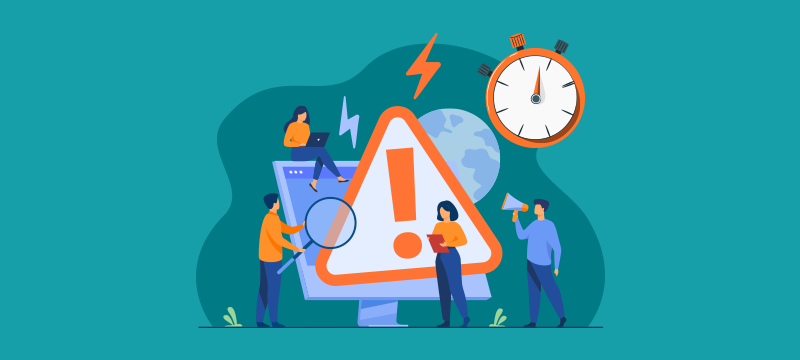The priority for every business owner is ensuring their website does not suffer from any downtime that would render the website unavailable online. Downtime has detrimental effects on your SEO, alienates customers, ruins the reputation of your business online, and causes a loss in revenue. If you wonder what you can do to minimize downtime and be always available to your visitors, there are certain measures you can take.
This blog sheds light on the best ways to ensure your website does not experience downtime. Take a look.
Select the perfect infrastructure
You need to decide on an infrastructure that can deal with huge amounts of traffic. One of the main causes of downtime is a spike in traffic. Hence, it is crucial for your web hosting server to have ample resources to ensure smooth functioning even when there are spikes in traffic.
Figure out the server size that is perfect for you. There are several aspects of the server you need to take into consideration namely RAM, processors, and hard drive space. The amount of resources your server has and its potential scalability have a huge effect on your uptime. How big your website is determines the hosting plan you choose.
Shared hosting is one of the most popular options due to its budget-friendly cost. However, there are several websites being run on the server that could result in downtime. There is a limit to the available resources, which could take a toll on its performance. Dedicated hosting does not offer ample scaling. So cloud hosting is a perfect choice.
Choose a managed hosting provider
Select a managed hosting provider that has a lot of expertise and experience in web creation tools that are implemented in your operation usually. They will ensure your website performance is monitored regularly along with creating backups and performing configurations and updates. Managed web hosting services ensure that they shoulder most of your web hosting responsibilities so that you can take care of the core aspects of your business.
You also get regular updates about what is going on with your website in depth. In case there is some issue, there will be notifications sent so that there is no downtime and there are proper preventive measures taken. They also ensure your website is safe and keep a track of the users who are trying to gain access to your system. It is much simpler to deal with your website if an expert is handling most of your web hosting tasks.
Maximize web security
There is no guarantee for your website to be 100% safe. However, there are several ways in which you can build a powerful defense around your website to deter or deal with attacks. A web application firewall is the perfect way to filter incoming traffic so that any harmful entity can be stopped from reaching your system. It is software that can keep your website safe from attacks such as cross-site scripting and SQL injection.
Ensuring your website is up to date can keep hackers at bay as there are limited to no vulnerabilities that can be exploited. Hence your web server, operating system, database server, and all apps need to be updated.
Strong passwords along with 2-factor authentication are a great way to ensure it is difficult for hackers to break into your website. Along with a password, 2FA asks for a code to be inserted to complete the logging-in process.
Regular backups
If your website has suffered and experienced downtime as a result of a false theme or plugin update, a major hack, or any such reason, remote backups solution are the best way to ensure your content is safe and can easily be recovered. If you have entirely lost your website data due to some reason, your backups can help minimize downtime and get your website back running in no time.
Hence, you should take backups often. So even if you encounter a problem, it does not have long-lasting effects. In fact, backups should be a priority with all of the other functioning of your website.
Conclusion
The aim for all businesses is definitely to aim for 100% uptime so that customers can access it whenever they want. However, that is not realistically possible. Unfortunately, if your website is experiencing downtime often, it could have a detrimental effect on the relationship you have with your customers. You could end up losing their trust.
The measures mentioned above will ensure your website will not have to suffer from downtime and is available to your visitors at all times. However, it is crucial to implement these measures regularly to help your website maximize uptime. This can help you grow your customer base and your revenue with it. It also helps you rank better and make a huge impact.
